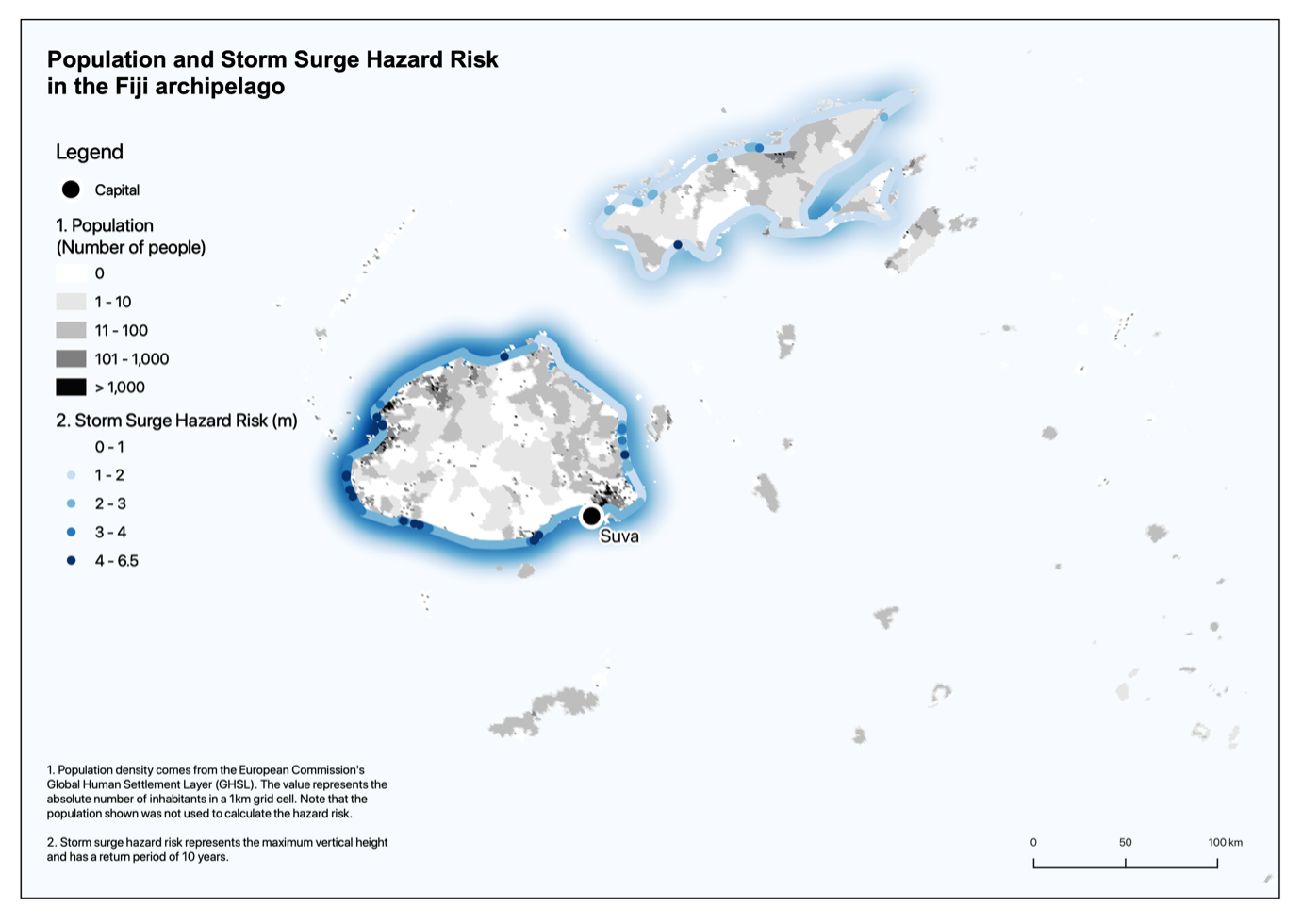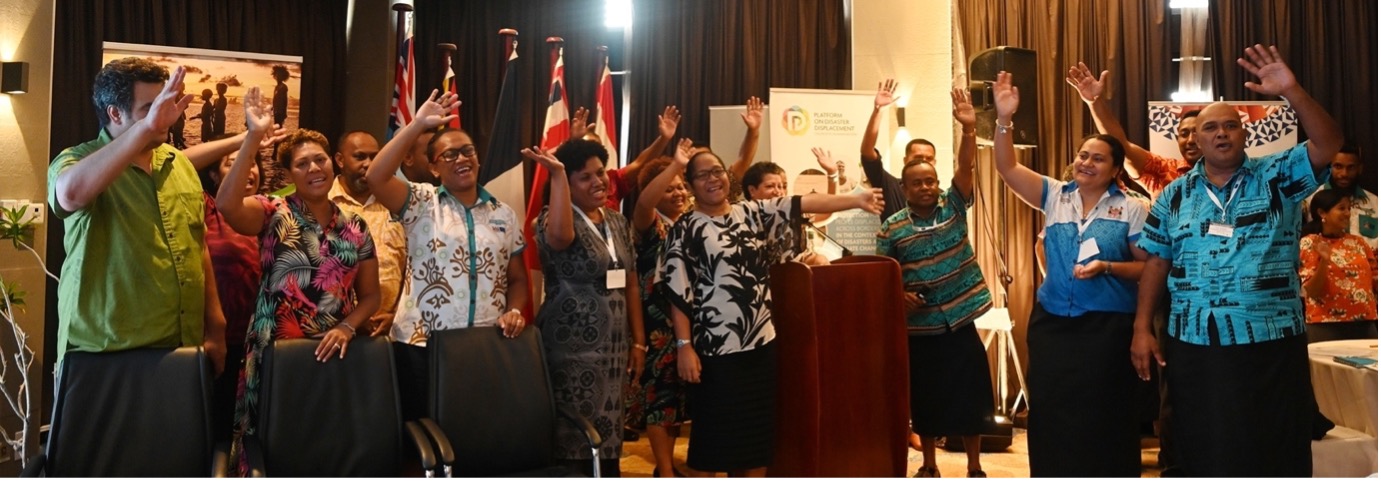
Expert analysis
03 April 2023
Disasters, displacement and data – behind the drive for data governance in the Pacific
In 2021, disasters triggered 13.7 million internal displacements in East Asia and the Pacific. As in previous years, the region accounted for the majority of disaster displacements recorded worldwide.
Against this backdrop, the Pacific Response to Disaster Displacement project, implemented by the Internal Displacement Monitoring Centre (IDMC), the International Organization for Migration (IOM) and the Platform on Disaster Displacement (PDD) in partnership with local authorities and the European Union, sought to improve regional disaster displacement data and apply it across the region to guide meaningful action.
As a regional initiative, the project moved beyond national borders, working with and through Pacific regional mechanisms to provide trusted displacement data in the region. Country-specific knowledge and data products developed through the project – including Community Vulnerability Assessments, Country Risk Profiles and Urban Case Studies developed by IDMC – provided governments with actionable data and tools to enable better-informed decision making.

Translating data into action:
Generating actionable data is of limited value if it cannot be used where needed. Ensuring decision-makers and operational actors’ capacity and commitment to use that data in policy and programmes is critical. In Fiji and Vanuatu, the project supported municipal councils in organising workshops to disseminate the results of the Urban Case Studies’ at the city level, focusing on the practical application and integration of the newly produced data into local level planning and government-initiated projects. In Fiji, the data presented through IDMC’s Urban Case Study supported the initiation, or continuation, of a number of development-centric activities, including the introduction of town planners in councils across Fiji. Across Tonga, the Solomon Islands and the Marshall Islands, the project provided practical guidance to governments to integrate displacement measures into policies, plans and strategies through tailored use of UNDRR’s Words into Action tools on disaster displacement.
The gaps between data, policy and action are felt across governments all over the world, particularly in disaster and displacement contexts where high degrees of both complexity and uncertainty make it hard to anticipate and prepare for risks. In Tonga, the recent establishment of a Displacement and Evacuation Management Centre Cluster marked a turning point in bridging these gaps across the Kingdom. The project worked with national stakeholders as the cluster developed, enhancing the capacity of national actors to discuss and integrate displacement considerations through a holistic lens – linking global advancements with local and indigenous knowledge, systems and lived experience. The cluster subsequently provides a mechanism for cross-sector partnerships established through project networks to be solidified. The end game: enduring strategic partnerships that mirror the ambition and goals defined by national authorities, to protect and prepare their local communities.
Building local knowledge & capacity:
In Tonga, Marshall Islands and Solomon Islands the project conducted a range of successful capacity building workshops introducing the IOM’s Displacement Tracking Matrix and simultaneously strengthening data literacy and knowledge. Used to gather baseline information on displaced populations, standard operating procedures (SOPs) for the Displacement Tracking Matrix were developed through the course of the project providing a simplified step-by-step process for the Pacific, tailored to each countries specific needs. The SOPs encourage partnerships beyond national disaster management offices, and help to build their capacity, so that displaced people are included in national surveys. These are critical steps in securing a pathway towards longer-term continuity. The Displacement Tracking Matrix has since been used as a blueprint for national data collection methods across the region.So, what’s next?
The project was brought to a close in late 2022 during the Pacific Regional Consultation: Promoting a Regional Approach to Human Mobility in the Context of Disasters and Climate Change in the Pacific. Recognizing the role of the project in generating and disseminating disaster displacement data and the political leadership of Pacific island leaders in acknowledging the issue as a priority in the 2050 Strategy for the Blue Pacific Continent, leveraging relationships and trust built through the project will be crucial to advance ongoing action in the region. The project findings make clear that robust systems for displacement data, governance, monitoring, management and co-design with governments, are key for advancing solutions to disaster displacement. However, there remains a lack of dedicated skills, capacity and financing within governments across the Pacific to develop and manage such systems. Increased investment in government-led data systems that support whole-of-government approaches is a critical step toward harnessing data to strengthen nationally owned action on disaster displacement.
Sophie Offner is a Research Consultant for the Pacific Response to Disaster Displacement Project based in the region.

